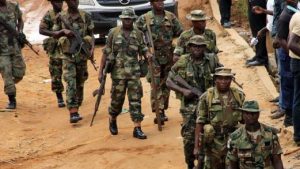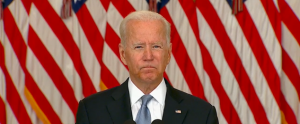
The Guardian / UK: “Erdoğan Outgunned At Trump Meeting In Face Of US-Russian United Front” By Simon Tisdall.
Turkey’s president, Recep Tayyip Erdoğan, put on a brave face after his White House meeting with Donald Trump, but there was no concealing that he had come away empty-handed. For this disappointing result Erdoğan can blame, among others, Vladimir Putin.
Turkish officials had billed Tuesday’s meeting as a pivotal moment for the two countries’ troubled relationship, and Trump, sticking to his script, made the expected noises in public. He commended Erdoğan as an important ally in fighting terrorism and singled out the Kurdistan Workers’ party (PKK), which both powers regard as a terrorist faction, as a particular threat.
Ignoring his own state department, Trump stayed silent on Turkey’s poor human rights record, which deteriorated sharply after last July’s failed army coup. He promised to press ahead with US arms sales to Turkey, a Nato member. “We’ve had a great relationship and we will make it even better,” he said.
But Erdoğan’s insistence that the US end its support for and supply of weapons to the YPG, the Syrian Kurdish militia that Turkey says is in league with the separatist PKK, was firmly rebuffed. Turkey’s repeated threats to close its Incirlik airbase to US aircraft and launch more raids across the Syrian border cut no ice, as the Pentagon sees the Syrian Kurds as an effective and dependable ally against Islamic State.
Erdoğan’s demand that the US extradite Fethullah Gülen, the US-based cleric whom Erdoğan blames for the coup, also fell on deaf ears. The best he could get on Gülen was a promise to examine “possible steps”.
In short, Erdoğan was outgunned. This was in large part because any hopes the Turkish leader had of US movement on the Syrian-Kurdish issue had already been dashed by Putin the day before.
Speaking in Beijing, the Russian president’s position appeared identical to Trump’s. His message to Turkey was the same: don’t mess with us in Syria. “As the Kurdish factor is a real factor in the situation in Syria and Kurdish armed formations are taking part in combat operations against Isis and are among the most combat efficient units, we consider it right to maintain working contacts with them,” Putin declared.
As such, Erdoğan has found himself facing a combined US and Russian front. This coordination on the YPG is no coincidence. It was almost certainly discussed during last week’s White House visit by Sergei Lavrov, Russia’s foreign minister, which Trump described at the time as “very, very good”. The meeting has since become controversial after claims Trump revealed secret intelligence.
Additional outcomes of the Trump-Lavrov talks appear to be prospective closer US-Russian consultation over directing the anti-Isis military endgame, US acquiescence in the Russian-run Syria peace process that sidelines the UN, and agreement to put Trump’s impulsive cruise missile attack on Russian-backed Syrian government forces in April to one side.
Next week, Trump’s first foreign tour will take him to Saudi Arabia and Israel but not Turkey, the supposed key regional player. It’s plain where Erdoğan stands in the pecking order.
Although they have yet to meet, the (tacit) Trump-Putin deal is simple: respect each other’s core interests and don’t sweat the details, like human rights and arms sales.
This level of cooperation should not be a surprise. It is part of a pattern, for even as Washington focuses on the political firestorm over Moscow’s alleged influence in the Trump election campaign and subsequent administration, joint US-Russian approaches to perceived international threats are evolving in other theatres.
To the dismay of some European allies, whom he will meet in Brussels next week, Trump has done much to reassure Russia over Nato, and the US and Russia are more or less on the same page on North Korea.
As Trump prepares to move against Iran once a “policy review” is completed and Friday’s presidential election in Tehran is out of the way, he will push for a Russian switch away from its previous support for the mullahs.
Targeting Iran will be high on Trump’s Saudi (and Israeli) agenda, along with weapons and oil. As Erdoğan discovered to his cost, Putin seems happy to play along with his mercurial American counterpart – but at what price?




